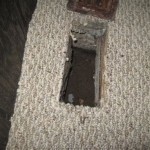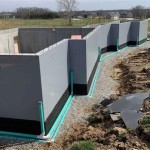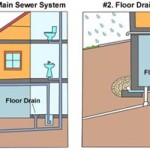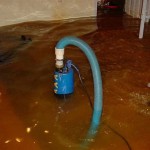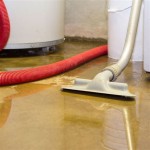What Is The Best Humidity Level For My Basement?
Basements, often seen as underutilized spaces, can be transformed into valuable living areas, workshops, or storage solutions. However, maintaining a comfortable and healthy basement environment requires attention to humidity levels. Excess moisture can lead to a range of problems, from mold growth and musty odors to structural damage and health issues. Understanding the optimal humidity range for your basement is crucial to prevent these problems and ensure a pleasant and safe space.
Ideal Humidity Levels for Basements
The ideal humidity level for a basement is generally considered to be between 30% and 50%. This range promotes a comfortable atmosphere while minimizing the risk of moisture-related problems. Lower humidity, below 30%, can lead to dry air and static electricity, while levels exceeding 50% increase the likelihood of moisture-related issues. It's important to note that this ideal range can vary slightly depending on the specific climate and intended use of the basement.
For example, if the basement is used as a living space or bedroom, maintaining a slightly higher humidity level, closer to 40-50%, can provide a more comfortable environment. Conversely, if the basement is primarily used for storage, a lower humidity level, closer to 30-40%, is generally recommended to minimize the risk of damage to stored items.
Factors Affecting Basement Humidity
Several factors can influence the humidity level in your basement, making it essential to assess these factors when determining the best humidity range for your specific situation. These factors include:
Climate: The climate in which your home is located plays a significant role in basement humidity. Areas with high humidity levels tend to have more moisture in the air that can penetrate basements.
Soil Conditions: The type of soil surrounding your foundation affects the amount of ground moisture that can seep into your basement. Clay soils, for example, retain more moisture than sandy soils.
Basement Structure: The structural design and materials used in your basement also influence humidity levels. Poor ventilation, inadequate insulation, and leaks in walls or windows can contribute to high humidity.
Water Intrusion: Water intrusion from sources like leaky pipes, overflowing gutters, or cracks in the foundation can significantly increase basement humidity.
Human Activities: Activities within the basement, such as showering, cooking, or drying laundry, can release moisture into the air, increasing humidity levels.
Managing Basement Humidity
Once you understand the factors affecting basement humidity, you can implement strategies to manage and control moisture levels. Some common methods include:
Ventilation: Proper ventilation is essential for removing moisture from the air. Ensure your basement has adequate ventilation by opening windows, using fans, or installing a whole-house ventilation system.
Dehumidification: Dehumidifiers effectively remove moisture from the air. Consider using a portable dehumidifier for smaller spaces or installing a whole-house dehumidifier for larger basements.
Seal Leaks: Address any leaks in your basement walls, windows, or foundation. Repairing leaks not only reduces humidity but also prevents potential water damage and mold growth.
Control Water Sources: Minimize external sources of moisture by ensuring gutters are clear, directing downspouts away from the foundation, and repairing any faulty plumbing.
Insulation: Proper insulation helps to prevent heat loss from the house, reducing the potential for condensation and high humidity levels in the basement.
Managing basement humidity is an ongoing process, requiring regular monitoring and adjustments as needed. By understanding the ideal humidity range, identifying the factors influencing moisture levels, and implementing effective management strategies, you can create a comfortable, healthy, and functional basement environment.

Dehumidifier Setting Chart What Should Be Set At

How To Achieve An Ideal Basement Humidity Of 30 50

A Guide To Controlling Nc Home Humidity Newcomb And Company

What Is The Ideal Basement Humidity Level Epp Foundation Repair

Best Humidity Level For Crawl Space Nia

How To Achieve An Ideal Basement Humidity Of 30 50

Hot In Here How To Maintain Ideal Indoor Humidity Summer

How To Achieve An Ideal Basement Humidity Of 30 50

The Ideal Humidity Level For Your Basement Reliable Waterproofing

How To Lower Your Basement S Humidity Level
See Also


